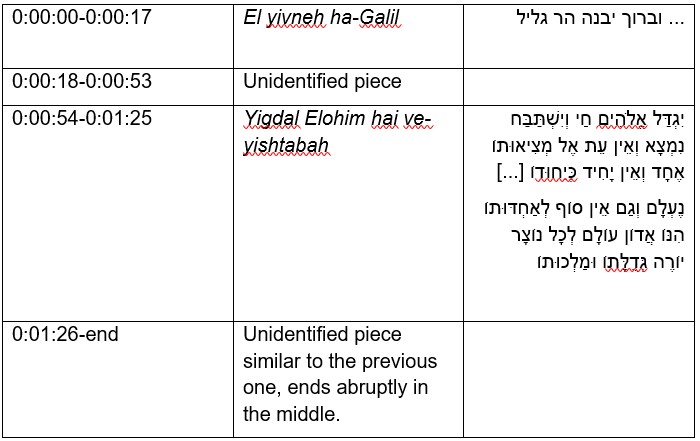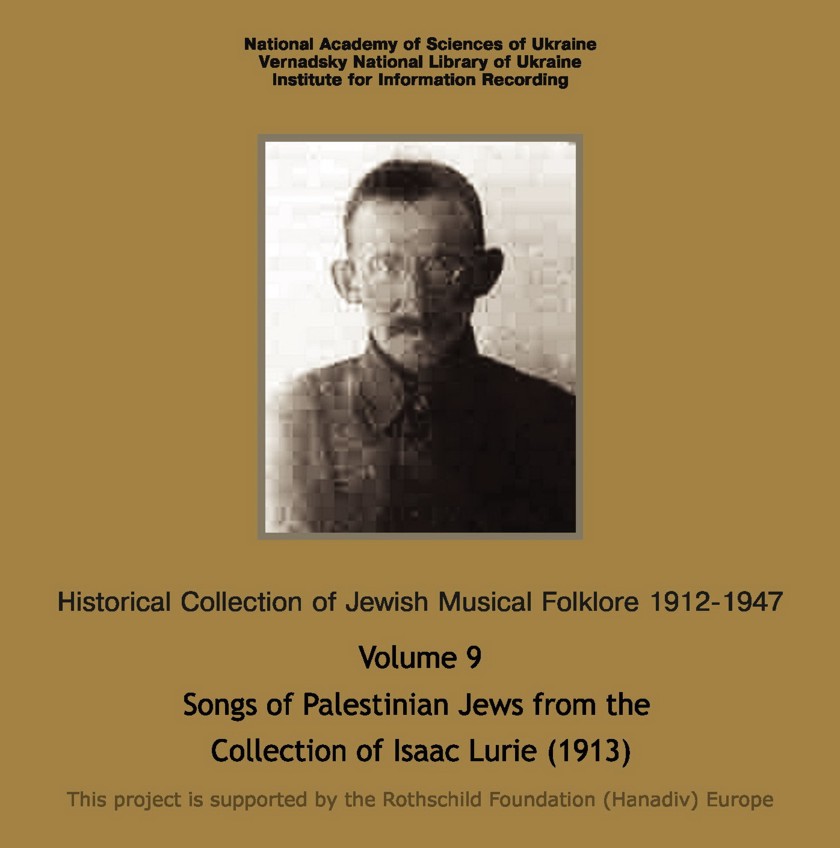Iran (Shiraz)
El lifne [sic] har Galil (shir hatunah)
Iran (Shiraz)
El lifne [sic] har Galil (shir hatunah). The god appearing in front of the Mount of Galil (wedding song). Bakashot hashkama be-parsit. Early morning prayers in Persian language. Yigdal Elohim hai ve-yishtabeah [sic]. May the living God be great and praised. Performed by Benjamin Hafrosi from Shiraz on July 10, 1913. Cylinder # 618. 1:51.
The singer binds together several short items. He opens with El yivneh ha-Galil [or "har Galil"] (God shall build the Galilee [ or 'the mountain of Galilee') a widespread responsorial Hebrew song from the Levant. It originates in a song in the form of an alphabetical piyyut for Simhat torah that was adopted by the Zionist settlers in Palestine at the turn of the 20th century. The recording is very unclear. It includes four units of apparently two verses each. However, they do not seem to correspond to the known text of this song. El yivneh is followed by an unidentified piece in Persian. Bakkashot are piyyutim (poems) recited early in the morning prior to the opening of the formal prayers. Persian-Hebrew poets like the 14th century poet Shaheen Shirazi or his successor ‘Amrani (1454-1536) composed songs for these occasions adapting to them traditional Persian melodies. The third piece is Yigdal Elohim hai ve-yishtabah. In Sephardic and Middle Eastern traditions this anthem is sung at the end of the Sabbath and Holyday eve services, but also as part of the Bakkashot. The singer performs the first two verses and then starts the third one but apparently due to a confusion he continues and ends with the fourth verse. A final fourth piece is also truncated.





